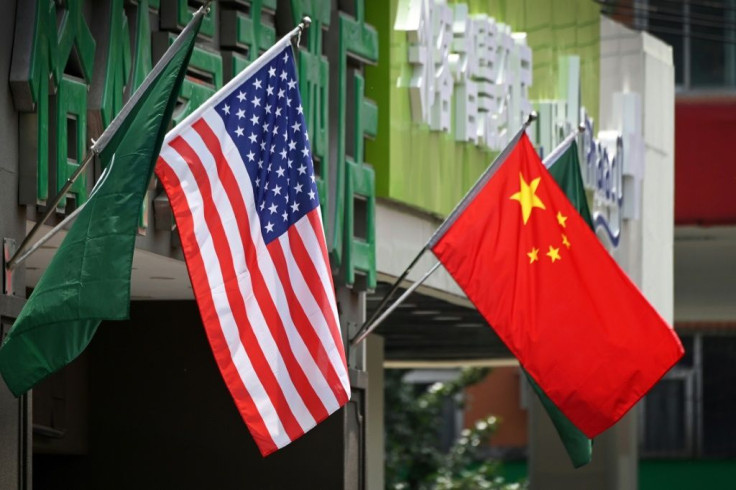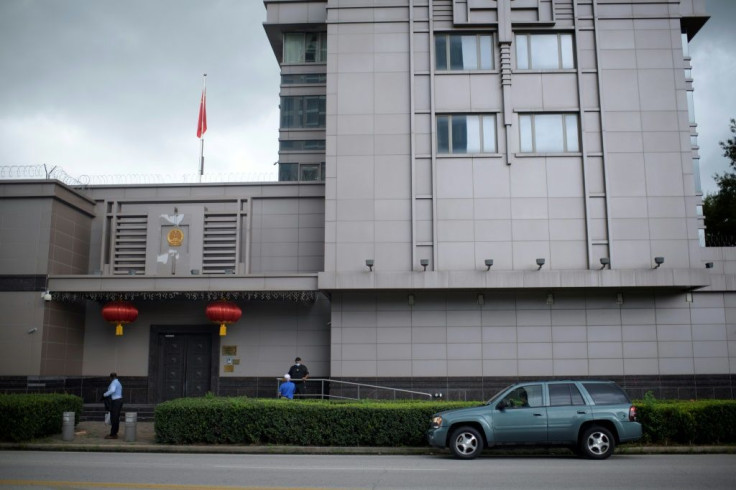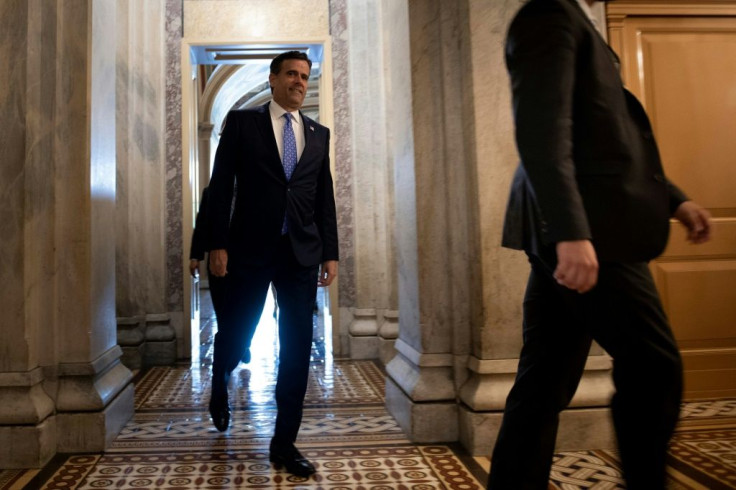US Intel Chief: China 'Greatest Threat To Democracy Worldwide'
The US intelligence chief on Thursday branded China as "the greatest threat to democracy and freedom worldwide since World War II," as Washington clamped down hard on travel visas for members of the Chinese Communist Party.
US Director of National Intelligence John Ratcliffe, writing in a Wall Street Journal opinion piece, pointed to China's theft of US business secrets and defense technologies.
"The People's Republic of China poses the greatest threat to America today, and the greatest threat to democracy and freedom worldwide since World War II," he wrote.
He also described operations in which Chinese operatives used economic pressure to influence or undermine US legislators.

"Our intelligence shows that Beijing regularly directs this type of influence operation in the US," he wrote.
"China's leaders seek to subordinate the rights of the individual to the will of the Communist Party," Ratcliffe said.
"They exert government control over companies and subvert the privacy and freedom of their citizens with an authoritarian surveillance state."
Meanwhile, the State Department said Chinese Communist Party members are "hostile to US values" and engage in "nefarious activities."
Under new rules effective immediately, visas issued to party members and their immediate family will remain valid for just one month after issuance, and for single entry.

Previously some visas were issued that permitted unlimited entries and could remain valid for as long as 10 years.
"For decades we allowed the CCP free and unfettered access to US institutions and businesses while these same privileges were never extended freely to US citizens in China," the State Department said.
"Through various entities, the CCP and its members actively work in the US to influence Americans through propaganda, economic coercion and other nefarious activities," it added.

It also said the CCP sends "agents" into the United States to monitor and harass Chinese nationals studying or working in the country as well as Chinese-American groups targeted for their politics.
The party, which dominates politics in Beijing and around the country, had 92 million members in 2019, so the State Department decision covering their families could affect several hundred million Chinese.
Tensions have soared between the world's two largest economies on a range of fronts and both countries have stepped up travel restrictions on each other's citizens.
The United States shut down the Chinese consulate in Houston in July, calling it a center of espionage and harassment of Chinese nationals in the US.
In retaliation Beijing ordered the US to vacate its consulate in Chengdu.
The Justice Department has arrested several Chinese researchers over the past year, accusing them of hiding their associations with the People's Liberation Army.
"Those five or six arrests were just the tip of the iceberg," Assistant Attorney General John Demers told the Aspen Security Forum on Wednesday.
Between those arrests, the consulate's closure, and other investigations, "more than 1,000 PLA-affiliated Chinese researchers left the country," he said.
Both countries have restricted journalist visas, with Washington curbing the number of Chinese nationals from state-run news outlets in the US earlier this year.
China responded in March by expelling more than a dozen American journalists from The New York Times, The Washington Post and The Wall Street Journal.
Beijing said earlier reports that the US was considering travel restrictions showed its "hatred and abnormal mindset towards the Communist Party."
"Some extreme anti-China forces in the US, driven by a strong ideological bias and deep-rooted Cold War mentality, are politically oppressing China," said foreign ministry spokeswoman Hua Chunying Thursday.
"This is an escalation of their political oppression towards China and China is firmly opposed to that," she said.
© Copyright AFP 2024. All rights reserved.

















